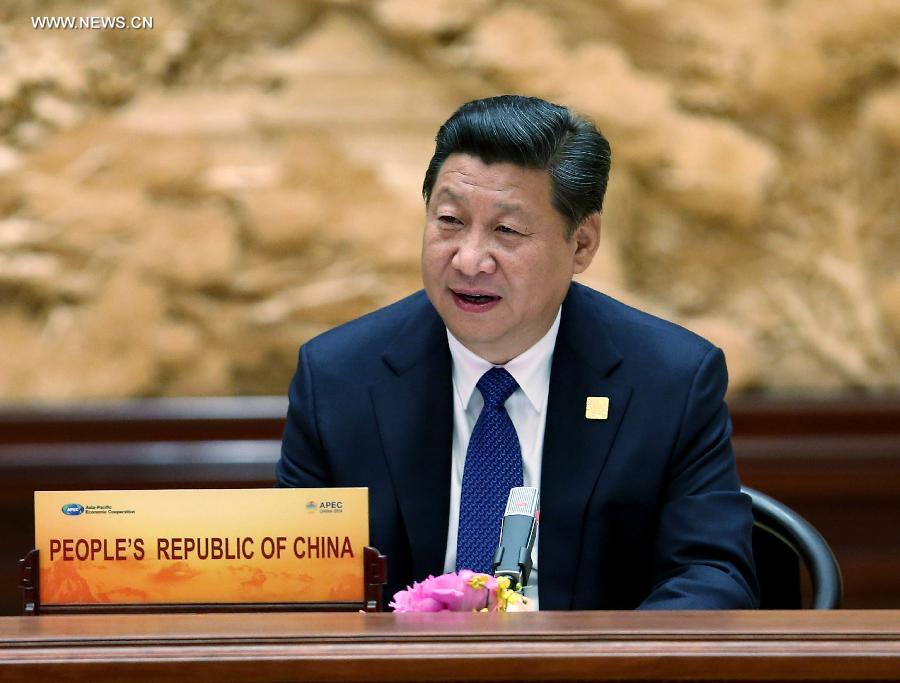Xi urges action at APEC leaders' meeting
 0 Comment(s)
0 Comment(s) Print
Print E-mail Xinhua, November 11, 2014
E-mail Xinhua, November 11, 2014
President Xi Jinping urged concrete actions to facilitate free trade, improve connectivity and pursue innovation at the APEC Economic Leaders' Meeting in Beijing on Tuesday.
Hosting the 22nd Asia-Pacific Economic Cooperation (APEC) Economic Leaders' Meeting in Beijing, Xi stressed that the APEC members have made important consensus on the launch of the Free Trade Area of the Asia-Pacific (FTAAP) process, promotion of connectivity as well as pursuit of innovation and development.
"We need to translate the consensus into actions and make development blueprints for the next five, ten and even 25 years," said Xi.
This year marks the 25th anniversary of the APEC, which has been a top-level and most representative cooperation mechanism that covers a wide range of areas in the Asia-Pacific.
The Asia-Pacific has entered a new stage of development with both chances and challenges, and problems should be tackled in an active manner, he said.
"How can we resolve the risks that regional economic integration goes fragmented? How can we seek new growth momentum in the post-financial crisis era? How can we break the financing bottleneck for connectivity development?" Xi said.
The 21-member APEC involves a population of 2.8 billion, or 40 percent of the global total, and produces 57 percent of the global gross domestic product (GDP) and contributes 46 percent of global trade.
Xi called on the APEC to lead the drive, breaking down barriers and speeding up the FTAAP process to realize greater regional economic integration.
Xi suggested bolder reform and innovation in governance, industrial development and technologies for the region to seek new growth momentum.
New economic situation also requires that the region speed up improving connectivity and infrastructure, Xi said.
"To realize the plans we have set, the APEC needs mutual trust, inclusiveness, collaboration and mutual benefit," he said.
The President called for collective efforts to deal with global challenges, such as pandemic diseases, food and energy safety as well as effective cooperation platforms.
The APEC can be an institutional platform to promote integration, a policy platform to strengthen experience exchanges, an open platform to fight against trade protectionism, a development platform to deepen economic and technological cooperation and a connection platform to promote connectivity, he said.
He announced at the meeting that China will donate $10 million for institutional development and capacity building of the APEC and provide 1,500 training places for developing APEC members.
The meeting is expected to launch the FTAAP process, release a statement on the 25th anniversary of the APEC, and make a blueprint to lay foundation for all-round connectivity in the Asia-Pacific.
It is also expected to promote innovation and reforms to seek new momentum for long-term development of the Asia-Pacific.




